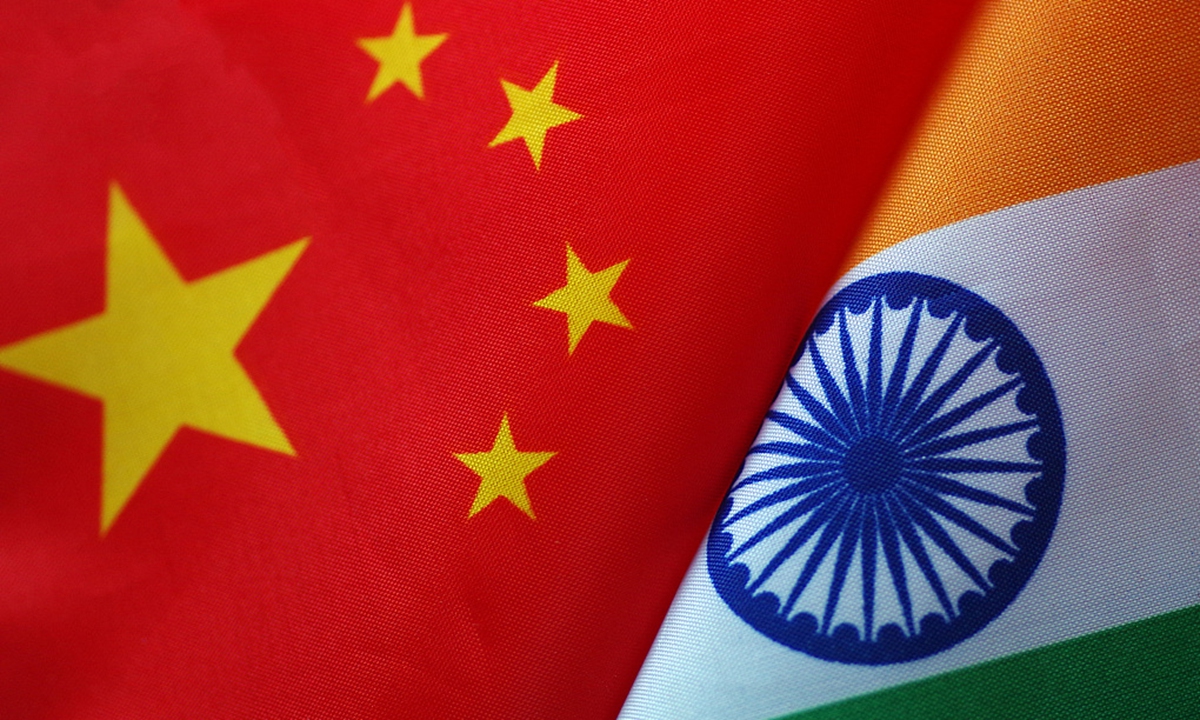Update: Return of PLA soldier bodes well for talks between China, India
By Wang Qi Source: Global Times Published: 2020/10/20 20:56:29 Last Updated: 2020/10/21 8:20:06

China India. Photo: VCG
The PLA soldier, who went missing while helping herdsman find yak near China-India border on Sunday, was returned to Chinese border troops by Indian army early on Wednesday, PLA News reported.
The Indian army's decision to return the Chinese soldier is viewed as a positive sign ahead of the eighth round of China-India commander-level talks this week. However, many believe that India should show more sincerity in the upcoming talks and less provocative moves.
Citing government sources, Indian media reported on Monday that China and India are expected to hold their eighth round of talks on border conflicts and discuss the disengagement process in the eastern Ladakh region.
In a statement, the Indian military said they will return a captured People's Liberation Army (PLA) soldier who reportedly strayed across the line of actual control (LAC).
The Chinese Defense Ministry announced on October 13 that the 7th round of the senior commanders meeting of India and China, which was held one day before, was positive, constructive and had enhanced understanding of both sides. Analysts believe that it is unwise for India to cater to its domestic radical power to confront China, especially as India suffers from the COVID-19 epidemic and a sluggish economy.
"India's move is a goodwill gesture ahead of the eighth round talks," Sun Shihai, an expert at the South Asia Research Center of Sichuan University, told the Global Times on Tuesday, adding that China and India had returned soldiers who strayed across the LAC before.
Sun noted the most significant issues in the upcoming talks are rebuilding the mutual-trust mechanism and disengagement, adding that India should make a commitment as soon as possible.
Chinese Foreign Ministry Spokesperson Zhao Lijian said at a press briefing on Tuesday that China hopes India hands over the soldier as soon as possible and works with China to promote the implementation of the consensus reached at the 7th round of talks.
However, in response to India's invitation to Australia to the Malabar military drill along with Japan and the US, Zhao said military cooperation between countries should be conducive to regional peace and stability.
China and India should avoid a vicious arms race and refrain from using force as a threat, despite some Indians' belief that building a strong military is the right way to ensure a peaceful border, Sun said.
Indian media reported the country test-fired a naval version of the BrahMos supersonic cruise missile from a stealth destroyer of the Indian Navy in the Arabian Sea on Sunday. In mid-September, one of India's largest military logistical exercises used vast quantities of ammunition, equipment, fuel, winter supplies and food in the Ladakh region, Reuters reported.
It will take a long time to develop mutual trust between China and India, Qian Feng, director of the research department at the National Strategy Institute at Tsinghua University, told the Global Times.
Qian said the moves by India show they are trying to increase bargaining power and initiative in talks through tricks of being tougher.
"China is capable of responding to India's moves in the diplomatic, military, economic, security and other fields… But China is always committed to resolving the issue through talks, and hopes that India will work with China to the same goal," Qian said.
We hope that India will implement the consensus reached by senior officials of the two countries, and avoid escalating conflicts… China remains unchanged on that, Qian said.
China's State Councilor and Foreign Minister Wang Yi met with Indian Foreign Minister Subrahmanyam Jaishankar in September in Moscow, and issued a joint statement and five-point consensus, which said differences should not lead to conflicts.
Posted in: DIPLOMACY